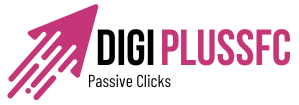Financial Freedom Tips: Secrets to Building Wealth and Living Freely In 2025
Financial Freedom Tips: Imagine making choices without money worries. Financial independence means you have enough to live the life you want. This includes savings, investments, and cash for your family.
You can stop living paycheck to paycheck and start building wealth. Follow practical tips for financial freedom to control your money future. Live the dream you’ve always had.
Right strategies can lead to financial freedom and peace of mind. Start today and learn how to build wealth and live freely.
What Financial Freedom Really Means in Today’s Economy
In today’s world, financial freedom means you can make choices without worrying about money. It lets you follow your dreams and interests without money holding you back.
The Modern Definition of Financial Independence
Financial independence is more than just saving for retirement. It’s about living life your way. This new view includes making choices about how you spend your time and money.
Why Traditional Retirement Planning Is No Longer Enough
Old ways of saving for retirement might not cut it anymore. With people living longer and the economy being unpredictable, you need a better plan. You should think about inflation, market ups and downs, and healthcare costs too.
By using financial freedom quick tips and debunking tips for financial freedom include all but the following myths, you can build a stronger financial future.
Assessing Your Financial Starting Point
The first step to financial freedom is knowing your current financial health. You need to understand your income, expenses, debts, and savings to reach financial independence.
Calculating Your Personal Financial Freedom Number
Your financial freedom number is how much money you need to live without a regular paycheck. Think about your monthly costs, debts, and lifestyle. Tips to financial freedom include managing your cash flow and making changes to reach your goals.
Identifying Financial Leaks and Opportunities
Finding where money is wasted or where you can save is key. Track your expenses and understand your spending. Look for ways to use your money better.
Quick Financial Health Check Tools
Online tools or spreadsheets can quickly show your financial health. They help you see your spending and find ways to improve.
| Financial Metric | Current Status | Target Status |
|---|---|---|
| Monthly Expenses | $3,000 | $2,500 |
| Debt Obligations | $10,000 | $5,000 |
| Savings Rate | 10% | 20% |
By following weekly tips for financial freedom and checking your finances often, you can make smart choices. This helps you reach your financial goals.
Designing Your Personalized Financial Freedom Roadmap
Your journey to financial freedom starts with a clear plan. This plan includes setting specific goals and making a detailed plan to reach them.
Setting Time-Bound Financial Milestones
To move towards financial freedom, you must set time-bound financial milestones. This means setting clear goals, like paying off debt or saving for emergencies. You also need to set deadlines for these goals.
- Identify your short-term and long-term financial goals.
- Break down big goals into smaller, easier tasks.
- Set a timeline for each milestone.
Creating Accountability Systems That Work
Accountability is key to sticking to your financial plan. You can create accountability systems by:
- Telling a trusted friend or mentor about your financial goals.
- Joining a financial support group or online community.
- Using digital tools to monitor your progress.
Digital Tools for Tracking Your Progress
Many digital tools can help you keep track of your finances. These include budgeting apps and investment tracking software. Some top choices are:
- Personal finance apps like Mint or You Need a Budget (YNAB).
- Investment tracking tools like Personal Capital.
By setting time-bound goals, creating accountability systems, and using digital tools, you can stay on track. This will help you reach your financial freedom goals.
Advanced Budgeting Techniques for Wealth Building
To build wealth, you need to master advanced budgeting techniques. These techniques align with your financial goals. Effective budgeting is key to financial freedom, helping you manage your money well.
Value-Based Spending Framework
A value-based spending framework lets you spend money based on what matters most to you. It helps you cut down on unnecessary spending and boost your savings.
Zero-Based Budgeting for Maximum Savings
Zero-based budgeting means every dollar is used for a specific expense or savings goal. This method helps you save more by avoiding wasteful spending.
The Anti-Budget Approach for Simplicity
If traditional budgeting feels too strict, try the anti-budget approach. It’s simpler, focusing on a few key financial goals. It also automates savings, making it easier to follow your financial plan.
| Budgeting Technique | Description | Benefit |
|---|---|---|
| Value-Based Spending | Aligns spending with personal values | Reduces unnecessary expenses |
| Zero-Based Budgeting | Allocates every dollar | Maximizes savings |
| Anti-Budget Approach | Simplifies financial planning | Easy to maintain |
Using these advanced budgeting techniques can help you take charge of your finances. This will bring you closer to financial freedom. For more tips for financial freedom and financial freedom quick tips, check out more resources to improve your financial plan.
Strategic Debt Elimination That Accelerates Wealth
Debt can block your path to wealth, but smart strategies can help you get past it. Using effective methods can cut down your debt and save you money on interest. This way, you’re closer to financial freedom.
Debt Stacking Methods for Faster Payoff
Debt stacking is a method to pay off debts quickly. You can focus on the debt with the highest interest rate or the smallest balance first. The choice depends on your financial situation and what you prefer.
Leveraging Balance Transfers and Refinancing
Another way to tackle debt is through balance transfers and refinancing. Moving high-interest debt to lower-interest options can save a lot on interest. This extra money can help you pay off your debt faster.
| Debt Elimination Strategy | Description | Potential Savings |
|---|---|---|
| Debt Stacking | Prioritize debts by interest rate or balance | Up to 50% on interest |
| Balance Transfers | Move high-interest debt to lower-interest cards | Up to 20% on interest |
| Refinancing | Replace existing loans with new, lower-interest ones | Up to 30% on interest |
When to Prioritize Investing Over Debt Repayment
While paying off debt is key, sometimes investing is better. This is true when your employer matches your retirement contributions or when interest rates are low. Finding a balance between debt repayment and investing is crucial for long-term success.
By following these tips to financial freedom and making them part of your weekly tips for financial freedom routine, you’re on the path to financial independence. Remember, consistency and smart financial choices are the keys.
Building Multiple Income Streams for Financial Security

Creating multiple income streams can greatly improve your financial security. It helps you move faster towards financial freedom. By having different income sources, you’re not stuck with just one. This makes your financial base stronger and more stable.
High-ROI Side Hustles for Working Professionals
Exploring high-ROI side hustles is a smart way to start. These can be freelance work, consulting, or online businesses. They use your skills and knowledge. Some top side hustles include:
- Freelance writing or editing
- Virtual assistance
- Online tutoring or teaching
- Affiliate marketing
These jobs can be done alongside your main job. They offer extra income without needing a lot of time.
Scaling from Active to Semi-Passive Income
Once you start your side hustles, aim to grow them into semi-passive income. This means making systems or products that earn money with little effort. Examples are:
- Creating and selling online courses
- Investing in dividend-paying stocks
- Developing and selling ebooks or other digital products
Switching to semi-passive income boosts your earnings. It also cuts down on the time and effort needed to keep earning.
Digital Products and Intellectual Property Assets
Digital products and intellectual property can be a big source of passive income. This includes making software, digital art, or writing books. Using your skills and creativity, you can make valuable assets that keep earning money over time.
Key benefits of digital products and intellectual property assets include:
- Potential for passive income
- Scalability without significant additional costs
- Ability to reach a global market
By adding these strategies to your financial plan, you can speed up your path to financial freedom. You’ll also achieve better financial security.
Investment Strategies That Outpace Inflation
Investing in assets that beat inflation is key to securing your financial future. Inflation can reduce the value of your money. It’s important to invest wisely to grow your wealth.
Low-Cost Index Fund Portfolio Construction
Low-cost index funds are a smart investment choice. They offer broad market exposure and diversification at a lower cost. A mix of index funds can balance risk and return, helping your investments grow faster than inflation.
Real Estate Investment Approaches for Different Budgets
Real estate can also outpace inflation. You can invest directly in properties or through real estate investment trusts (REITs). For any budget, options range from crowdfunding to individual property investments, offering flexibility and potential for big returns.
Tax-Advantaged Account Optimization
Using tax-advantaged accounts can boost your investment returns. Accounts like 401(k), IRA, or Roth IRA offer tax benefits. Knowing how to use these accounts can be a financial freedom quick tip.
Roth Conversion Ladders and Backdoor Strategies
For those with traditional IRA accounts, a Roth conversion ladder can be smart. It involves moving funds to a Roth IRA, potentially saving on taxes in retirement. Backdoor Roth IRA strategies can also offer tax benefits, especially for those who can’t contribute directly to a Roth IRA.
When exploring these strategies, getting advice from a financial advisor is crucial. They can help create a plan that matches your goals and risk level. This way, your investments can beat inflation and secure your financial future.
Weekly Tips for Financial Freedom That Compound Over Time
Spending a few minutes each week on financial planning can lead to big changes. It’s all about being consistent. Adopting weekly habits can bring big gains in the long run.
Automation Systems for Wealth Accumulation
Automating your savings and investments is a smart move. Set up automatic transfers to save money without thinking about it. This way, you avoid spending on things you shouldn’t.
Micro-Habits That Lead to Major Financial Gains
Small habits like tracking expenses or saving a bit each day can add up. These habits, done regularly, can lead to big savings and gains.
Regular Financial Reviews and Adjustments
Checking your financial progress regularly is key. Look at your budget, investments, and debt. Adjust as needed to keep moving towards financial freedom.
Here’s a table showing how weekly habits can add up:
| Weekly Habit | Monthly Impact | Annual Impact |
|---|---|---|
| Saving $50 weekly | $200 | $2,400 |
| Reducing dining out by $30 weekly | $120 | $1,440 |
| Investing $100 weekly | $400 | $4,800 |
By following these weekly tips, you can make steady progress towards financial freedom. The key is to stay consistent and adjust as needed.
Protecting and Preserving Your Growing Wealth

As your wealth grows, protecting it becomes a big responsibility. It’s important to use strategies that keep your financial freedom safe.
To really protect your wealth, look at these key areas:
- Insurance Coverage Optimization: Make sure you have enough coverage to handle risks.
- Legal Structures for Asset Protection: Use legal entities to protect your assets from unexpected problems.
- Digital Security for Financial Accounts: Use strong cybersecurity to keep your digital assets safe.
By focusing on these areas, you can make your financial security better. This helps keep your wealth safe over time. It’s a smart way to achieve lasting financial freedom tips.
Insurance Coverage Optimization
Check and update your insurance policies often. Make sure they match your growing wealth.
Legal Structures for Asset Protection
Talk to a legal expert to find the best protection for your assets. They might suggest trusts or LLCs.
Digital Security for Financial Accounts
Use strong, unique passwords and two-factor authentication. This will help keep your financial accounts safe.
Financial Freedom Tips Include All But the Following Myths
Getting to financial freedom is often clouded by myths. These myths can mess up even the best plans. It’s key to know the truth from the lies in personal finance.
Debunking Common Financial Independence Misconceptions
Many think you need a lot of money to be financially free. But, it’s more about using your money wisely than how much you make. Smart financial decisions and a good plan can get you there, no matter your income.
Why “Get Rich Quick” Schemes Always Fail
“Get rich quick” plans are usually too good to be true. They promise big returns with little risk, but they’re often scams. Stick to safe, long-term ways to grow your wealth.
The Truth About Timing the Market
Trying to time the market is a common mistake. It’s hard to guess market ups and downs right. A better plan is to invest for the long haul. This way, you can handle market swings and grow your money over time.
By knowing and avoiding these myths, you can make a better plan for financial freedom. Build a strong financial base. This will help you reach your financial goals in the long run.
Lifestyle Design for Sustainable Financial Independence
Financial independence is more than just wealth. It’s about living a sustainable lifestyle that keeps your finances healthy. To truly be free, you must design a life that matches your financial dreams.
Geographic Arbitrage is a smart strategy. It means using places with lower costs to save more money. For example, you could live in a cheaper area and work in a place that pays more.
Geographic Arbitrage Strategies
- Look for places with lower costs but still a great quality of life.
- Find remote jobs that let you earn more from afar.
- Stay connected with loved ones using technology, even when you’re far away.
Mindful Consumption Without Deprivation
Mindful spending means choosing purchases that fit your values and goals. It’s not about cutting out fun, but being smarter with your money.
- Be thankful for what you already have.
- Wait before buying things you don’t really need.
- Invest in experiences and items that truly make you happy.
Building Community for Shared Resources
Creating a community can give you access to shared resources and support. This can help you achieve financial freedom.
- Join groups online or locally that focus on financial freedom.
- Take part in groups where people share skills or resources.
- Work together with others on financial goals and projects.
By using these strategies, you can improve your path to financial independence. You’ll enjoy the freedom that comes with it.
Conclusion: Taking Action on Your Financial Freedom Journey
Now that you’ve learned the key financial freedom tips, it’s time to start using them. Getting to financial independence takes dedication and a solid plan. You’ve discovered how to check your financial status, create a personal plan, and use smart budgeting.
To move faster, work on paying off debts, building different income sources, and investing smartly. Also, keep your wealth safe with insurance and legal setups. By using these financial freedom tips, you’re getting closer to your dreams.
Stay dedicated, and you’ll reach the financial freedom you’ve dreamed of. Begin your journey now and use the financial freedom tips from this article to your advantage.

